Freshly roasted speciality beans vs. supermarket coffee
If you wander down to your local supermarket or convenience shop and pick up a bag of coffee beans or pre ground coffee, you're probably used to paying somewhere between £3-6 for a 250g bag.
If you decide to buy coffee from your local cafe, order coffee online directly from a roaster or through a multi-roaster subscription like RiSE coffee box, you'll find that the average price is around £8 – £14 for the same quantity. So why pay more? Alice and Ben have been drinking specialty coffee for many years and can vouch for the benefits.
SPECIALITY COFFEE VS. SUPERMARKET COFFEE
When it comes to specialty coffee, the clue is in the name. Specialty coffee (also known as speciality coffee) is a lot different from your usual coffee beans. A similar comparison would be regular beer vs craft beer. You can pick up a can of Heineken for £1.50 or you could opt for a £4 Beavertown brewery lager, with beautiful design, amazing flavour and award-winning quality.
What is specialty coffee? According to the Specialty Coffee Association; “Specialty coffee can consistently exist through the dedication of the people who have made it their life's work to continually make quality their highest priority. This is not the work of only one person in the lifecycle of a coffee bean; specialty can only occur when all of those involved in the coffee value chain work in harmony and maintain a keen focus on standards and excellence from start to finish. This is no easy accomplishment, and yet because of these dedicated professionals, there are numerous specialty coffees available right now, across the globe, and likely right around the corner from you.”
For a coffee to be deemed specialty it must reflect quality from every step of the coffee creation process - from production, the green buyer, the roaster, the barista and of course you, the consumer. Specialty coffee must also score above 80 according to the SCA scoring system and is generally considered very good quality when scoring between 80-85, and excellent quality between 85-90 points. Geisha coffee (that we talk about here) would fall into this latter category. Coffee you find inside your RiSE coffee box or on our online shop generally range between 84-87.
Commodity grade coffee, generally found in the supermarket, would always score well below 80 and instant coffee wouldn’t even make the scale.
The main difference between specialty coffee and coffee you find in the supermarket is related to price and volume. Supermarket coffees tend to be mass produced coffee which sits on the shelves as a commodity. This coffee is bought in huge bulk and therefore has to have a long shelf life. Specialty coffee is carefully picked by the roasters, a lot of thought goes into the beans they select, the defects, quality and tasting notes they experience. Speciality coffee is also roasted to order, and is therefore as fresh as it gets.
Specialty coffee roasters review all aspects of the coffee from the origin of the bean (and whether it is in season), the altitude, varietals and generally spend a lot of direct time with the farmers and importers to ensure it is from a farm with good sustainable credentials and paying fair wages. The focus is purely on quality and using their skills to get the best from the beans, not on price or volume. The green bean is generally more expensive per kilogram (and fairer prices are paid).
Supermarket coffee on the other hand is big business. Read a recent report on Wicked Leeks - written by The Green Party's spokesperson on food, agriculture and rural welfare, Emily O'Brien.
"Supermarkets have an incredible stranglehold over their suppliers. Unlike in other businesses, food producers don’t just set their prices – they plead for them. Supermarkets regularly refuse to pay an increase to their suppliers without demanding to see private accounts, poring over them line by line, making them justify every penny”
SUPERMARKET COFFEE: A COMMODITY PRODUCT
When it comes to commodity coffee, it's all about price and volume. Supermarkets aim to get the coffee on and off the shelf as quickly as possible and the beans are roasted in huge volumes. Coffee is given a best before date, not a roasted date and can often be up to 2 years old. You can read more about why freshness is so important in our blog post here
Commodity products are generally what you see on the supermarket shelves. The commodity coffee industry is made up of big businesses like Illy, Costa, Nescafe, Kenco etc. This part of the industry relies on arabica-robusta blends or low quality arabica. Instant coffee for example is made from Robusta coffee, and corporates like Nescafe are huge buyers in markets such as Vietnam.
Commodity or supermarket coffee is sold according to the ‘C-price’. This is the price set by the stock markets in London and New York (Fact: coffee is also the second most valuable commodity behind Oil). The C-price is the price of coffee quoted in US dollars per pound in weight. The price is not related to the quality of the coffee.
The farmers are at the mercy of the C -price. When this is low, the money the farmer receives for their coffee beans (green) barely covers the cost of the production and harvest and provide a livelihood for their families. Coffee still has the most basic harvesting tools with machetes still being used to cut down the coffee cherry. The wages they receive does not allow them to improve the farm facilities or think about future methods.
Due to the lack of traceability as well as the low quality green beans used, commodity coffee is roasted to a very dark profile which destroys the unique, inherited flavours from the cherry and instead takes on a burnt flavour from the roasting process itself.
DIFFERENCES IN FRESHNESS BETWEEN SUPERMARKET COFFEE AND SPECIALTY COFFEE

As we mentioned briefly above, supermarket coffee has a best before date, whereas speciality coffee tends to have a roast date. This is because the freshness of the coffee beans has a huge impact on the flavour of the coffee. Contrary to a good whiskey, that ages in time, roasted coffee beans lose their flavour as they start to oxidise. When you buy speciality coffee from a roaster online shop or a coffee subscription, it will usually have been roasted within a matter of days or weeks, definitely not months. When you buy coffee beans from a supermarket, they have a sell-by date that can be up to two years. This means that the coffee at the supermarket may already be months or even years old, before you buy it!
One of our Top 10 Brew Tips was to try tasting coffee side by side using different variables. We’d definitely recommend giving this a try with supermarket coffee. Brew both a supermarket coffee and a speciality coffee side by side, in a few different ways, and you will really be able to see the difference in quality. One of the key things you will spot is the aroma from the coffee in the bag. The freshly roasted coffee will have an incredible aroma vs much older supermarket coffee. From our point of view, this really tells you all you need to know about the quality of the beans!
BUYING PRE-GROUND VS WHOLE BEAN COFFEE
We always say that buying whole bean is the better option for coffee lovers like us. In fact, we’ve reviewed some of our favourite grinders and encourage you to have a read here, if you haven’t already got one. We encourage everyone to grind their coffee at home to increase the flexibility of options for drinking it. With a grinder you can brew your coffee multiple ways and really have fun experimenting! But the other key point relates to freshness - once a bean has been ground, oxygen starts to reach into the coffee bag, which means it goes stale quicker. The ground coffee you buy at the supermarket is not only much older and poorer quality than the coffee roasters sell, but it’s even less fresh due to the nature of it being pre-ground.
If you switch from pre ground supermarket coffee to whole bean specialty roasted coffee, you will be sure to be impressed with the difference, that's for sure.
ARE ALL 'SINGLE ORIGIN' COFFEES SPECIALITY COFFEE?
Not always, the term single origin can only be used in advertising when the beans come from the same region. However, within one region there could be a huge amount of producers all producing coffee. So a supermarket single origin Brazil could still be made up of a huge variety of different coffees from Brazil! Generally with specialty independent roasters, they tell you about the specific farm and where the regions are, so you have full transparency of the region it was produced in. In every RiSE coffee box, we provide info cards on each coffee and tell you about the actual farmers and families behind the coffee, so you know precisely who produced your coffee and from what region. If a Brazil single origin has beans from 10 different farms, it is very hard to prove the quality of each of those. The single origin gives the bag a higher perceived value but in reality unless you know which farms produced it, it means nothing. We all care about traceability and understanding the source of our food and drink products and unfortunately, supermarket coffee just does not give you that.
There are also different grades to buying green coffee. Specialty coffee accounts for about 10% of a farm's harvest. These are the highest quality beans with the least amount of defects. Commodity coffee is known as buying C grade coffee. In bulk, and much lower quality - regardless of whether it is all from the same region.
DOES FAIR TRADE MEAN HIGHER QUALITY AND FAIRER PRICES?
Firstly, What is Fair Trade? Fair Trade is a non-profit organisation that certifies goods like coffee, chocolate and sugar — making sure that these products are made according to a set of strict standards that encourage environmental sustainability, as well as trying to ensure that the communities involved in production are treated and compensated fairly. Fair trade logos are slapped across most supermarket products these days, but does this really equate to better quality products and fairer wages for farmers? Unfortunately, in the world of coffee, a fair trade label may not always mean highest quality. Only farms that have a specific level of volume and manufacturing equipment are able to be awarded Fair Trade certification, which means many small holder farmers with the highest quality product are not able to be awarded Fair Trade. Specialty coffee demands a higher price for its quality which means the farmers get paid a higher price, and this is achieved through buying direct. We spend a lot of time at RiSE speaking to roasters and importers and understanding how they make their purchasing decisions. The independent roasters are buying much lower quantities of higher quality coffee which helps farmers earn a high price.
WHAT IS THE REAL DIFFERENCE IN PRICE?
The price difference of specialty coffee may appear much larger vs supermarket coffee, but if you break it down per cup you will be surprised as to how cheap it really is. A £22 RiSE coffee box gives you 500g of freshly roasted specialty coffee, from one of our favourite hand picked independent roasters. Assuming you use around 14g per cup, this equals to 62p per cup of coffee. In comparison to a glass of wine or a can of beer this is as cheap as chips. Spending an extra few pennies on each cup of coffee to get the best tasting coffee you can experience at home is totally worth it, right?
THERE IS STILL A PLACE FOR SUPERMARKET COFFEE.
There are still some good reasons to buy supermarket coffee. It is convenient, there’s no denying that. Some of our customers buy the occasional bag of coffee from the supermarket and save their RiSE coffee for special occasions. So if you want to save the good stuff for the weekend or when you have friends round to show off how good your at home barista skills are, use supermarket coffee to get you through the week. We totally get it. Please, just don’t buy instant coffee!
So now you know, if you didn't already, what the difference is between supermarket coffee and freshly roasted coffee beans, and also the difference between commodity coffee and speciality coffee, and single origin and single farm/estate – we hope you found this useful.
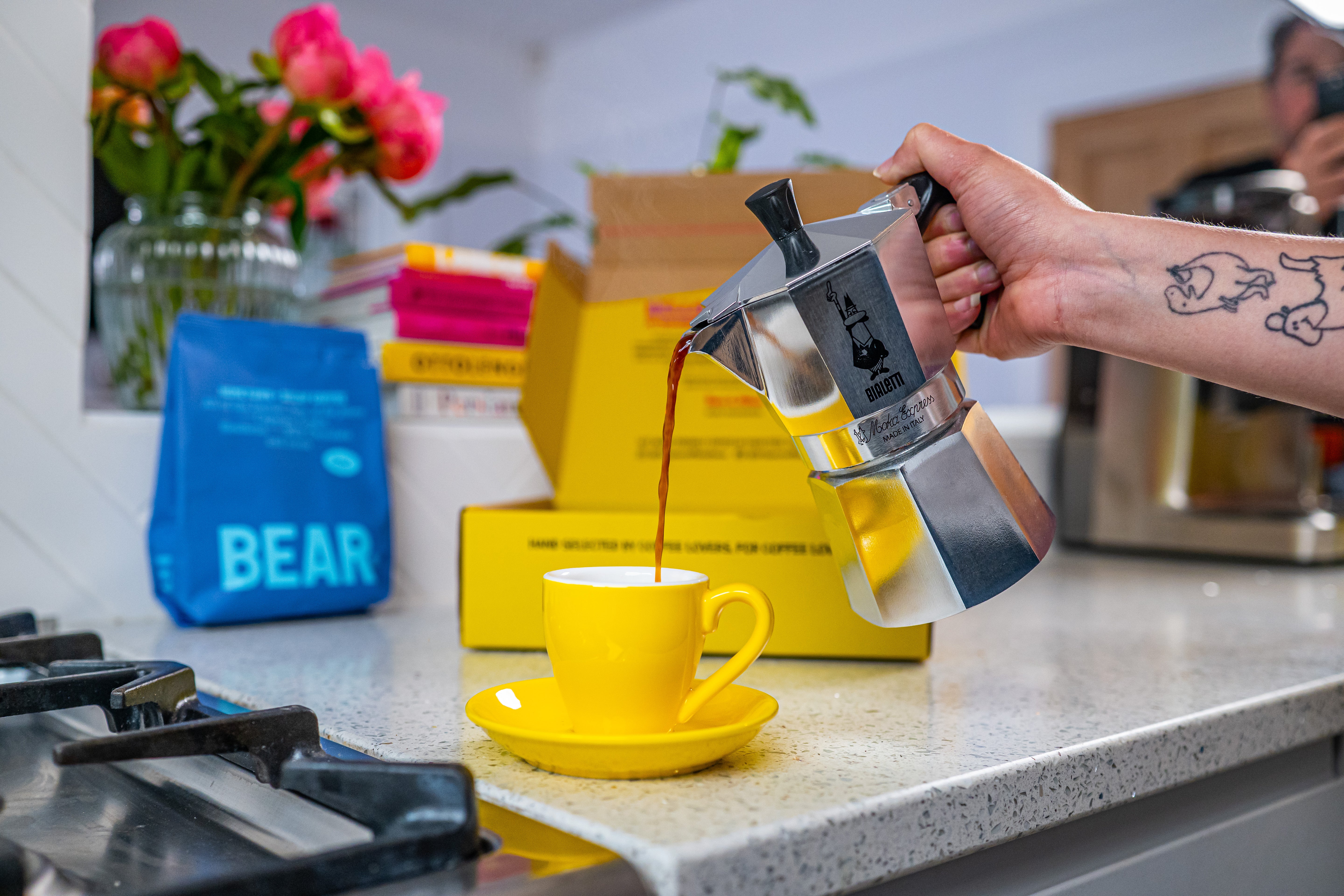
MONTHLY COFFEE DELIVERED TO YOUR DOOR
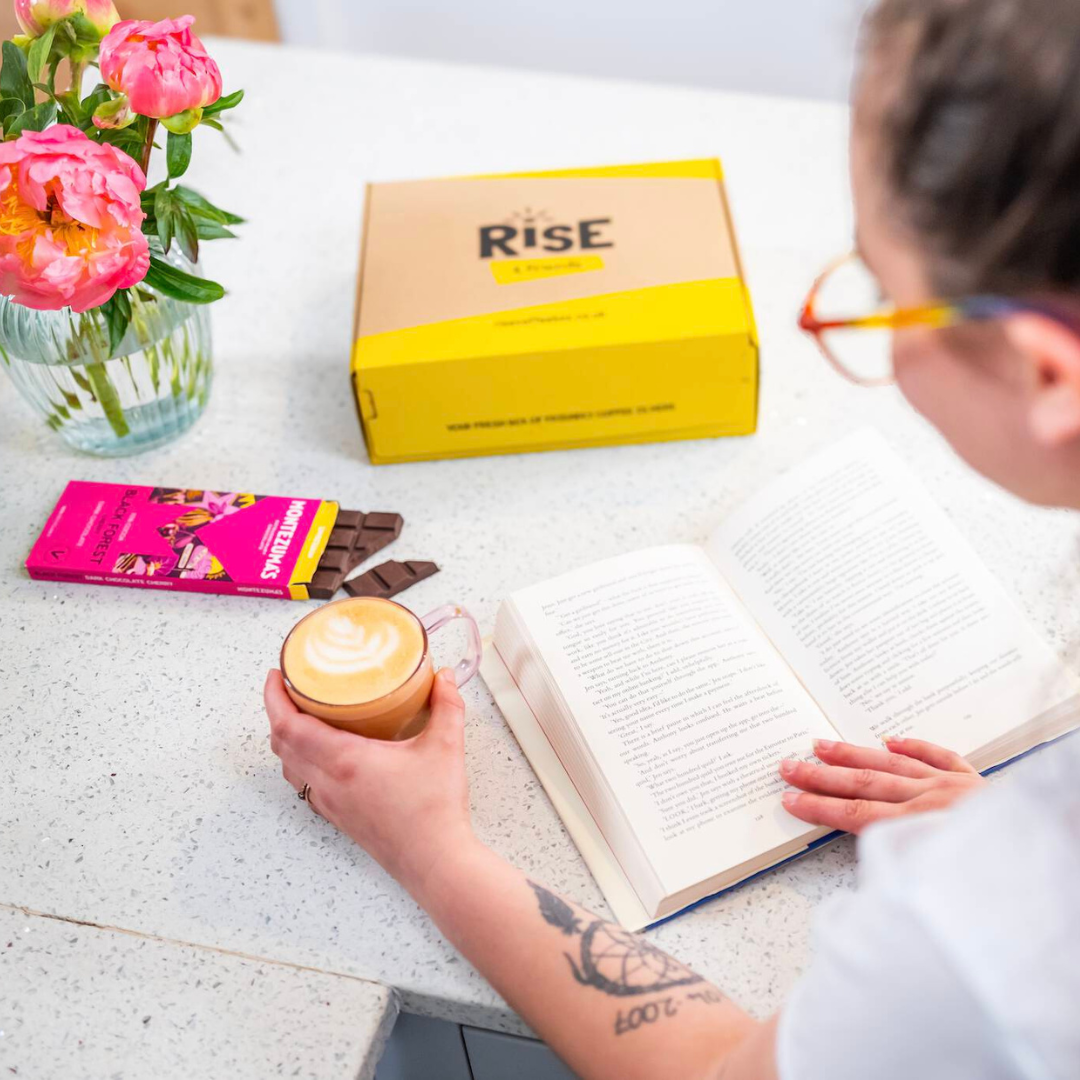








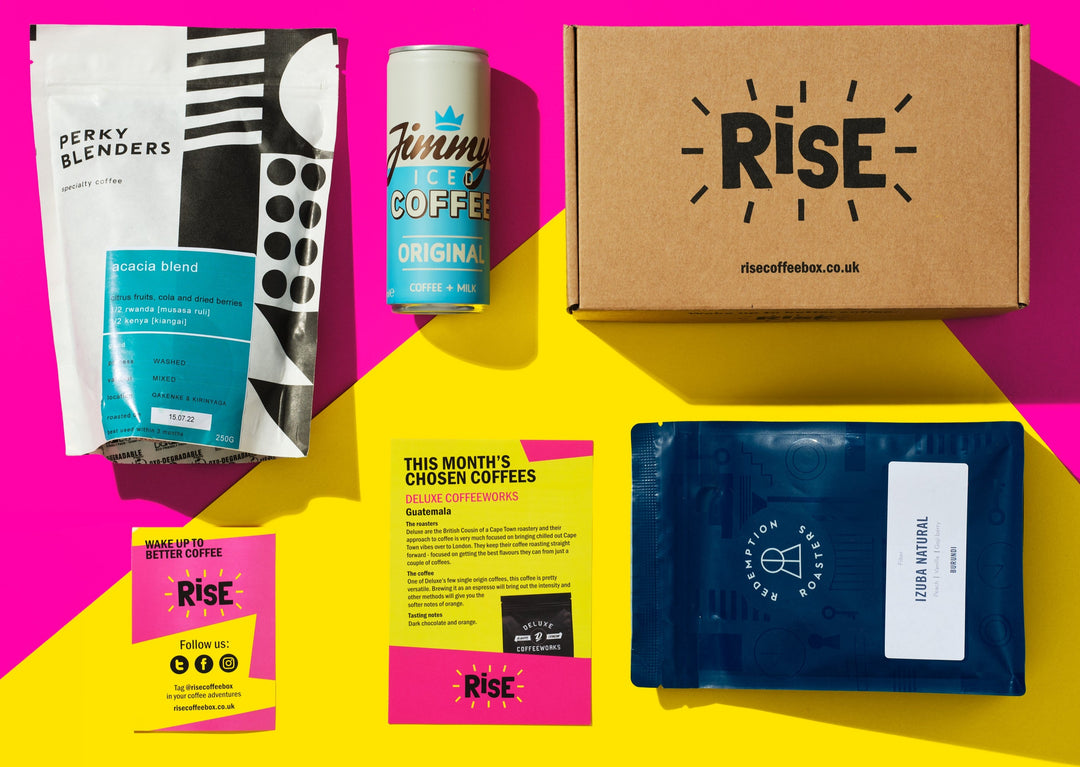

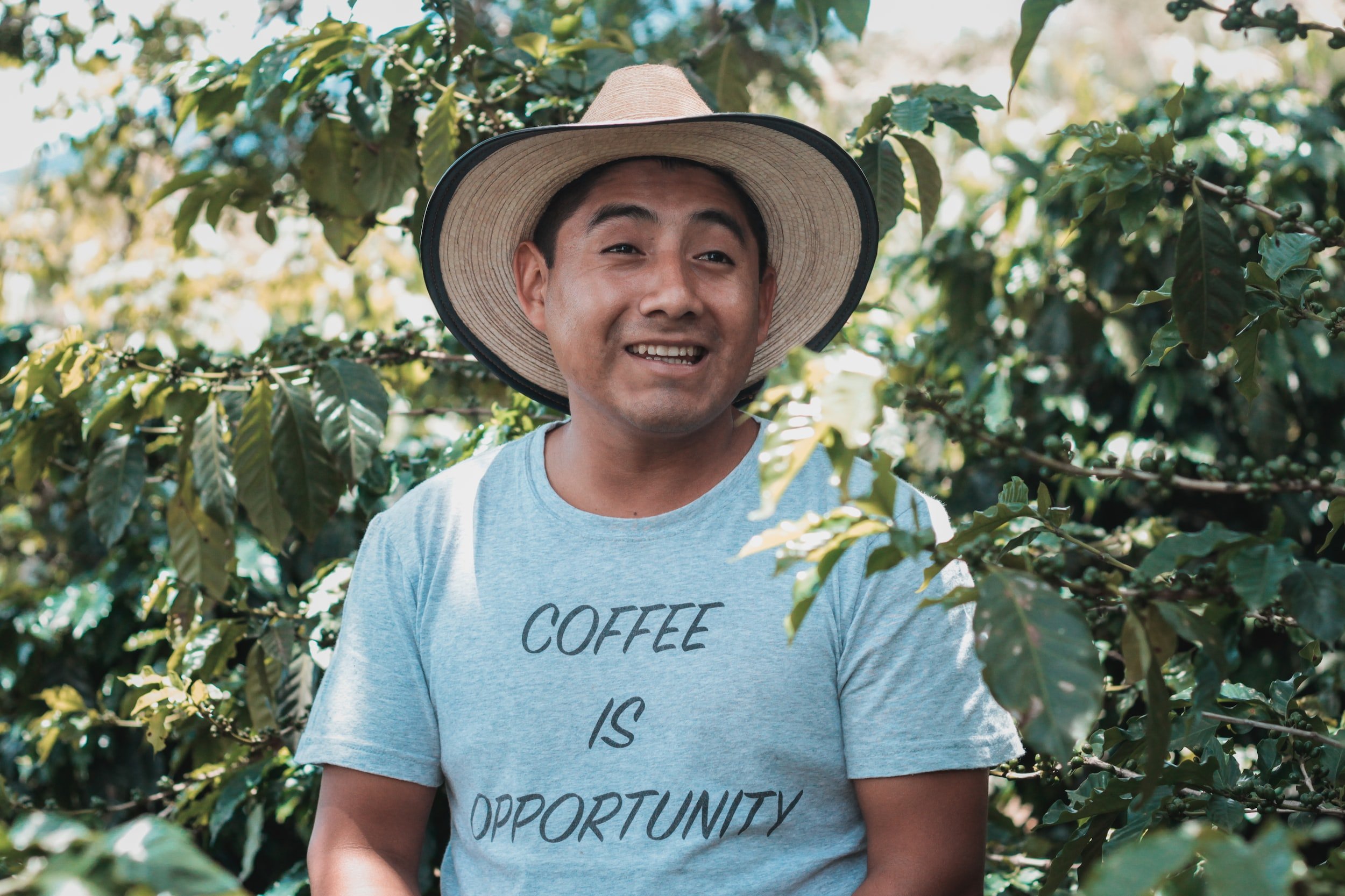
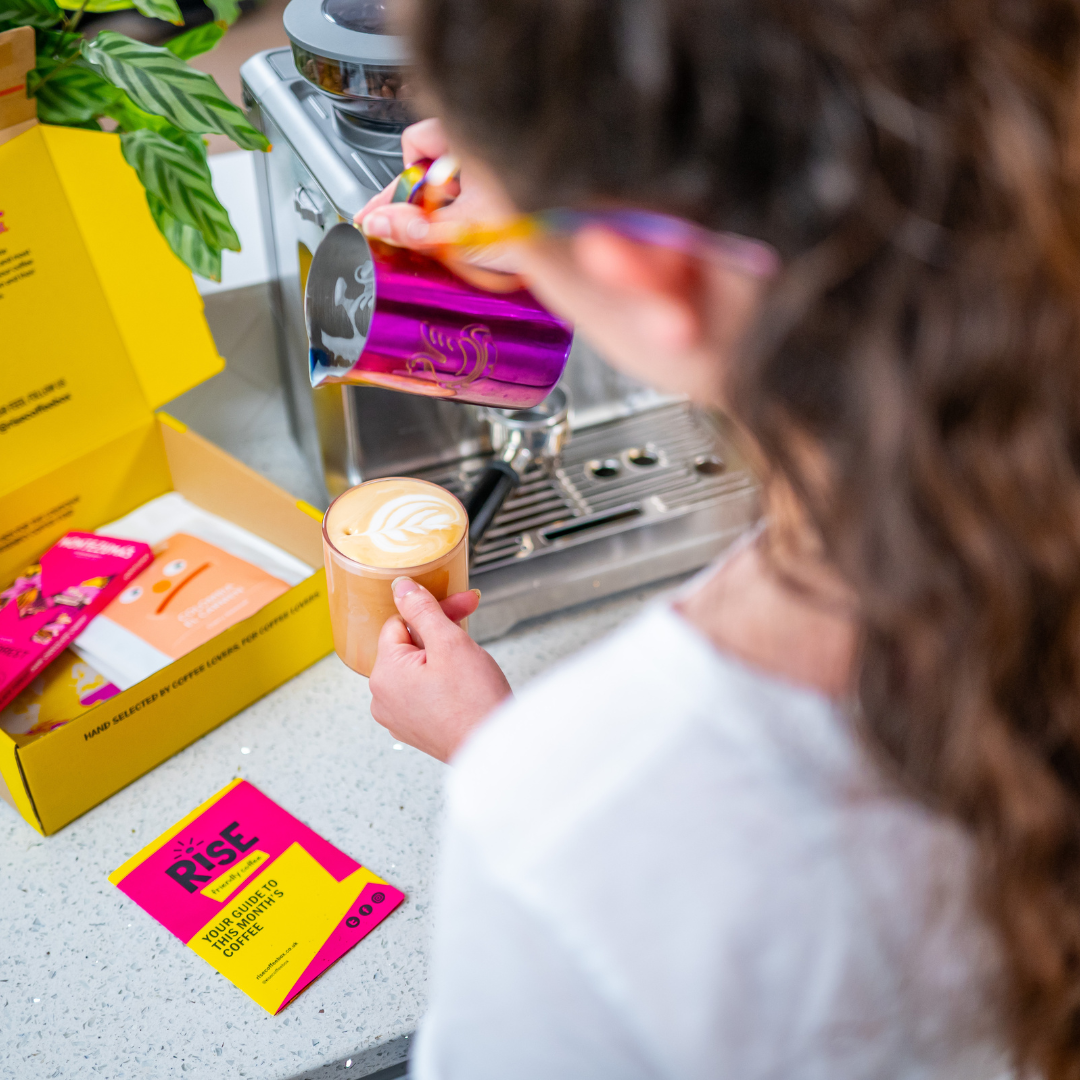
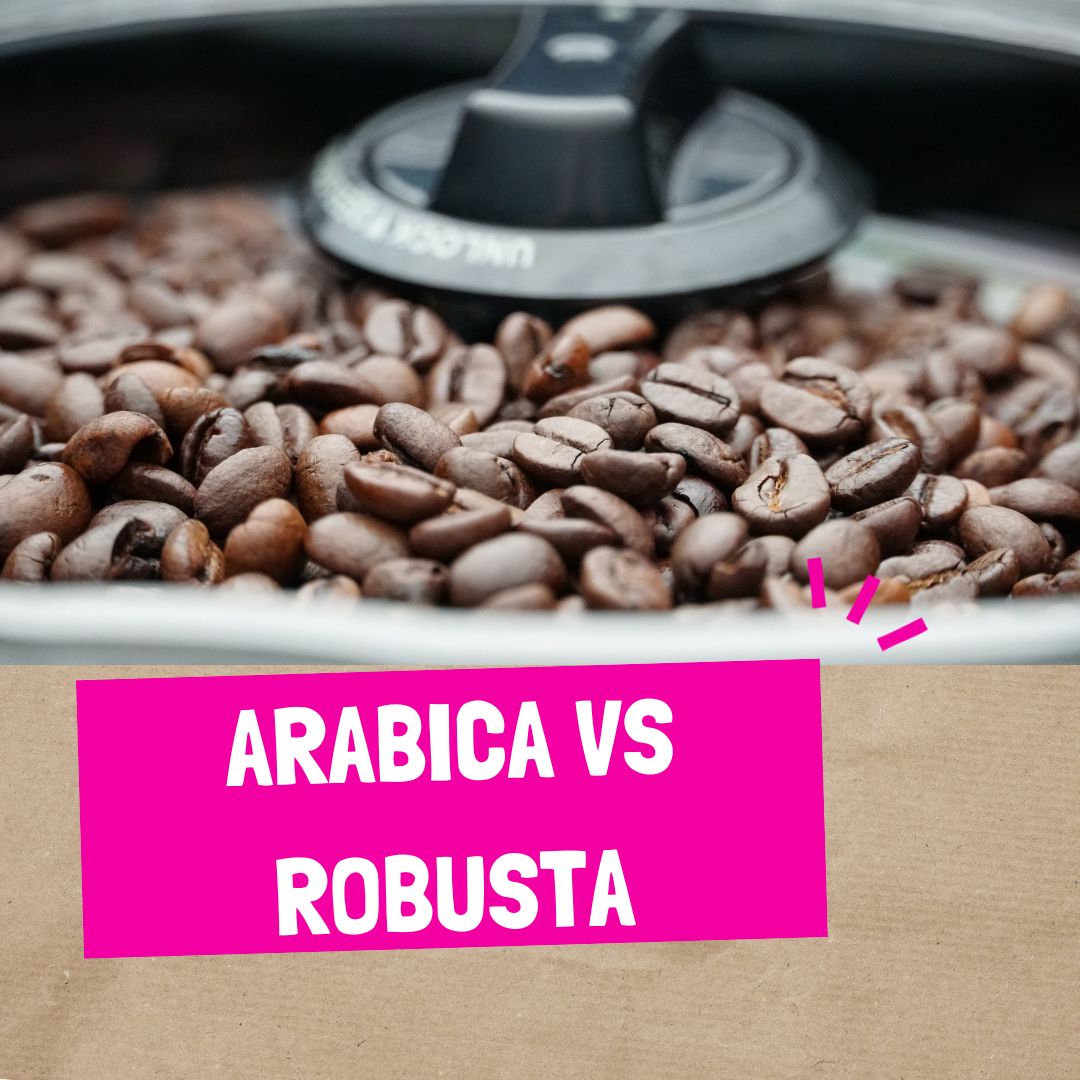


















Leave a comment